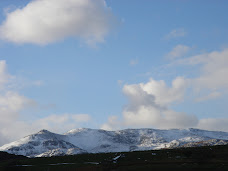HS2, Metro and Sprint are three very expensive and quick ways to use up finite fossil fuels and to accelerate climate catastrophe or ecocide from the burning of fossil fuels. Is this a correct view to take?
Does the introduction of multi-modal public transport make for more changes between the different modes and, therefore, a slower journey?
Do HS2, Metro and Sprint all duplicate existing services?
Could the existing services be upgraded to make them as least as good as the average on the mainland of Europe?
Or, could road pricing deter car commuters and open up road space for essential business users, be better value for money and be more effective in cutting GHG emissions?
How do you decide when to replace a Platinum bus with Metro "bus on rails" trams and when to use, instead a Sprint bus, "the bus that thinks it's a tram"?
HAVE I GOT THIS RIGHT? The tortuous journey from Derby to Worcester!
- You can take a passenger train from Derby to Burton on Trent.
- Freight only past the National Memorial Arboretum to Lichfield. Therefore:
- Passengers are forced to take two sides of a triangle, via Nuneaton to get to Lichfield.
- The line from Lichfield to Walsall is built but unused and the full length may be turned into a cycle-walkway. Therefore, hire a bike in Lichfield to get to Walsall.
- Walsall to Wednesbury section of the railway is also unused. Therefore, catch a bus to Wednesbury tram stop to catch the Metro to Dudley bus station.
- A bus is again needed to bypass the existing but unused double track railway from Dudley Castle Hill tram stop to Stourbridge Junction railway station.
- TRAIN - AT LAST - to take you to Worcester!
















No comments:
Post a Comment